- Arrival and Registration in the Atrium
- Workshop 1: Your guide to life sciences grants and funding in the UK
David Brookes•Shawn ManningIncluding Innovate UK, Horizon 2020, EIS Investment Scheme, British Business Bank

David Brookes
Tax Partner at BDO
Shawn Manning
Managing Director of Akesios Associates Limited
- Workshop 2: Biologics Analytical Methods: Trends and Strategies to Accelerate Development
Roberta BucciKindly hosted by Catalent.
Over the past several years, the growing sales and revenue of biologics points towards a shift in the pharmaceutical market. The industry is investing more into expanding biologic pipelines, thus strengthening the long-term prospects for biologic growth. In contrast to small molecules, biologics are more diverse and mostly consist of complex mixtures that are not easily identified or characterized. During the development of large molecule analytical methods, the speed of analysis, method sensitivity and robustness are all considered as key elements to meet rigorous criteria requested by regulatory authorities for a validated method. This presentation summarizes the current biologics analytical landscape and its challenges, and discusses strategies to overcome them. Catalent’s expert also describes how the stepwise approach for analytical testing can be used to reduce risks and challenges present in biologics development.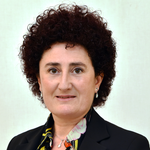
Roberta Bucci
Principal Scientist, Analytical Development, Catalent Biologics at Catalent Pharma Solutions
- Workshop 3: Efficiencies and Adjacencies—Important Considerations for Effective CRO Partnerships
Frances Murphy•Michael TowseKindly hosted by Precision for Medicine.
The step towards the clinic is a wonderful mix of challenge and reward for biotechs, and finding the right CRO for your clinical journey is critical. Join the team from Precision for Medicine to learn about:
- understanding the implications of CRO comparison requests and their impact on CRO creativity
- how your provided timelines are interpreted and used and how critical it is that these are accurate
- how to analyze the entirety of a CRO's offering to identify a value-added partnership opportunity
Frances Murphy
Regional Vice President, Clinical Business Solutions EU & APAC at Precision for Medicine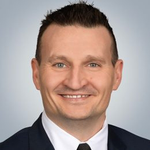
Michael Towse
Vice President, Business Communications at Precision for Medicine
- Workshop 4: Manufacturing and Clinical Considerations in Cell & Gene Therapy
Amy Edmonds•Debbie Ingenito•Panteli TheocharousKindly hosted by Thermo Fisher Scientific.
Join this workshop for an insight into the manufacturing and clinical considerations required in Cell & Gene Therapy, with topics including:
• Volume of CGT Trials Versus Accessible Qualified Centres
Due to the complexity of cell therapies, the FDA currently mandates the collection and administration of products through a restricted and regulated programme within certified centres by trained healthcare providers who adhere to risk evaluation and mitigation strategies (REMS) guidelines. This includes The Foundation for the Accreditation of Cellular Therapy (FACT) and The Joint Accreditation Committee ISCT-Europe & EBMT (JACIE), two accreditation providers that assure that the healthcare organisation is qualified for patient care in this therapeutic setting.
• Complex Patient Referral Pathway
Due to its complex nature, access to cell therapy is highly regulated and available for treatment only at certified centres as outlined above. This process can create a complex patient referral pathway, making for the widespread adoption of cell therapy challenging.
• Manufacturing
Manufacturing in cell and gene therapy is considered made to order as each treatment is patient-specific and manufacturing starts with very different and variable material, especially in an autologous process where every sample is received from a different patient. The manufacturing process of autologous cell therapies requires apheresis, extraction of cells, transportation to a manufacturing facility, genetic engineering, and transportation of the finished product back to the treatment centre where the personalised therapy is administered to the patient. This vein-to-vein time can range between three to six weeks depending on the product and company.
• Patient Evaluation, Selection and Treatment
Identification of suitable patients for cell therapies can be challenging. Patient eligibility, including indication, haplotype and antigen-specific eligibility are required with autologous therapies and as community practices do not generally offer cell therapies, the timing of treatment may not be as clinically strategic as possible.
• Volume of Cell Therapy Treatments Versus Available Staff
As with introduction of any new advanced therapy, additional expertise is required to enable successful implementation. With the success of cell therapy comes the obvious challenge of available staff and personnel at both the participating centres to the companies implementing them.
Panellists:
Dr. Panteli Theocharous – Global Vice President, Cell and Gene Therapy Strategy Lead, PPD, part of Thermo Fisher Scientific
Amy Edmonds – Vice President, Clinical Operations at Achilles Therapeutics
Debbie Ingenito – Director, Clinical Programme Lead US/EU at Achilles Therapeutics
After the workshop you can also visit the Thermo Fisher Scientific team at stand 36 to discuss any questions you may have and for any follow-on information.
Amy Edmonds
Vice President, Clinical Operations at Achilles Therapeutics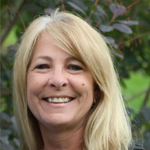
Debbie Ingenito
Director, Clinical Programme Lead US/EU of Achilles Therapeutics
Panteli Theocharous
Global Vice President at PPD, part of Thermo Fisher Scientific
- Lunch Break • Atrium
- Workshop 5: Opportunities to overcome the challenges associated with the upstream manufacture of viral gene therapy products by using a platform approach
Sarah TimpKindly hosted by Merck.
Hundreds if not thousands of genetic diseases exist which are being targeted for gene therapy applications. Popular viral vectors used for in vivo and ex vivo gene transfer are Adeno-Associated Viruses (AAV) and Lentivirus (LV). However, there are certain challenges that producers face in present day viral vector manufacturing, such as unstable production cell lines, scalability issues, low product yields and serum-containing media, just to list a few. In this session we will discuss how the use of an upstream platform approach; bringing together optimised cell lines, chemically defined media and an upstream process at a commercially relevant scale can contribute to overcome these challenges.
Sarah Timp
Technical Application Consultant – Upstream Processing at Merck
- Workshop 6: An update on the latest R&D tax credits incentive and what this means for business
Sam StephensJoin TBAT’s Founding Director, Sam Stephens for an update on the upcoming April 2023 legislation changes for the R&D Tax Credits schemes.
R&D Tax Relief is a HMRC incentive, designed to inspire innovation within UK businesses, by rewarding them with a percentage of their expenditure as either Corporation Tax relief or a cash-repayment.
The upcoming changes are due to come into effect in April 2023, and are designed to help prevent the abuse of the schemes and protect legitimate claims. While these changes are an overall positive for the schemes, they add complexity to making a R&D Tax Credits claim.
Additionally, more claimant companies than ever are being investigates by HMRC’s Fraud Investigation Service as they crack down on fraudulent claims. We will discuss the best actions to take, should you receive an HMRC Enquiry into your R&D Tax claim.
In this workshop, Sam will cover:
• What HMRC consider as &D
• The benefits of R&D Tax Relief
• Upcoming legislation changes
• What do to if you receive a HMRC Enquiry
After the workshop you can also visit the TBAT team at stand 36 to discuss any questions you may have and for any follow-on information.
Sam Stephens
Director of TBAT Innovation
- Workshop 7: How to Pitch to Potential Partners & Collaborators
Edward ZandersThis session will provide tips and strategies for presenting your company to potential partners and collaborators, with an emphasis on ‘less is more’. Our trainer, Ed Zanders, will provide tips on how to package and structure information in a way that creates maximum clarity and minimum distraction when making the pitch.
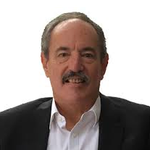
Edward Zanders
Managing Director of PharmaGuide
- Workshop 8: Roadmap to Regulatory Success in early development
Björn CarlssonKindly hosted by NDA Group.
Early developers often face challenges and pitfalls. Therefore, it is crucial to learn how to closely consider regulatory requirements during the early nonclinical drug development, in order to facilitate rapid progress towards clinical testing.
The developers need to understand the difference between “need-to-know” and “nice-to-know” questions and learn how to confidently navigate the issues. It is vital to follow a pre-set regulatory development pathway, with scheduled regulatory agency interactions, to reach those all-important milestones that in the long run are necessary to ensure that the drug reaches the final stage of development.
Professor Carlsson will cover some of the challenges and pitfalls and he will explain how to confidently navigate the regulatory pathway towards clinical testing.
After the workshop you can also visit the NDA team at stand 21 to discuss any questions you may have and for any follow-on information.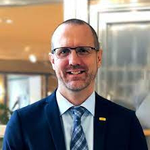
Björn Carlsson
NDA Advisory Board Member at NDA Regulatory Science
- Workshop 9: Building and retaining your team for long term growth
Alice Eadle•Matt Shaw Clark•Kamila BaileyKindly hosted by Hays.
Today’s candidate-led market is making it harder than ever to attract candidates with the right skills and experience. The consequences can be serious to your business, but what strategies can you employ to attract professionals who will help your business grow?
The Biotech sector is particularly affected by the skills shortage, so how do you attract, recruit and retain the talent you need to grow? If you are a business owner (or senior manager), an HR or Recruitment professional, then this session is for you.
The panel will be discussing some key issues relating to these points, before a brief Q&A with the audience.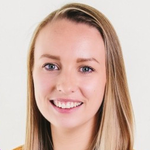
Alice Eadle
Senior Talent Acquisition Partner at Perspectum Diagnostics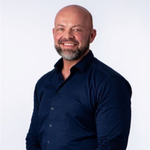
Matt Shaw Clark
Client Engagement Director, UK and Ireland Recruitment expert in Life Sciences of Hays Specialist Recruitment
Kamila Bailey
Head of HR and Operations at BiologIC Technologies
- Closing Drinks in the Atrium